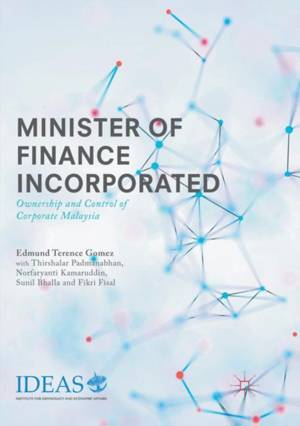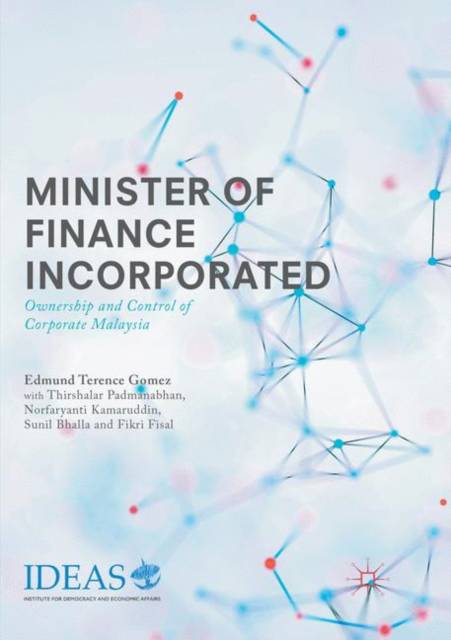
Bedankt voor het vertrouwen het afgelopen jaar! Om jou te bedanken bieden we GRATIS verzending (in België) aan op alles gedurende de hele maand januari.
- Afhalen na 1 uur in een winkel met voorraad
- In januari gratis thuislevering in België
- Ruim aanbod met 7 miljoen producten
Bedankt voor het vertrouwen het afgelopen jaar! Om jou te bedanken bieden we GRATIS verzending (in België) aan op alles gedurende de hele maand januari.
- Afhalen na 1 uur in een winkel met voorraad
- In januari gratis thuislevering in België
- Ruim aanbod met 7 miljoen producten
Zoeken
Minister of Finance Incorporated
Ownership and Control of Corporate Malaysia
Edmund Terence Gomez, Thirshalar Padmanabhan, Norfaryanti Kamaruddin, Sunil Bhalla, Fikri Fisal
Paperback | Engels
€ 99,45
+ 198 punten
Uitvoering
Omschrijving
This is a study of Malaysia's new political economy, with a focus on ownership and control of the corporate sector. It offers a pioneering assessment of government-linked investment companies (GLICs), a type of state-owned institution that has long prevailed in the corporate sector but has not been analysed. Malaysia's history of government-business ties is unique, while the nature of the nexuses between the state and the corporate sector has undergone major transitions. Corporate power has shifted from the hands of foreign firms to the state to the ruling party, and well-connected businessmen, and back to the state. Corporate wealth is now heavily situated in the leading publicly-listed government-linked companies (GLCs), controlled through block shareholdings by a mere seven GLICs under the jurisdiction of the Minister of Finance. To indicate why these GLICs are important actors in Corporate Malaysia, this study provides a deep assessment of their ownership and control of Bursa Malaysia's top 100 publicly-listed enterprises.
Specificaties
Betrokkenen
- Auteur(s):
- Uitgeverij:
Inhoud
- Aantal bladzijden:
- 256
- Taal:
- Engels
Eigenschappen
- Productcode (EAN):
- 9789811352591
- Verschijningsdatum:
- 29/12/2018
- Uitvoering:
- Paperback
- Formaat:
- Trade paperback (VS)
- Afmetingen:
- 148 mm x 210 mm
- Gewicht:
- 344 g

Alleen bij Standaard Boekhandel
+ 198 punten op je klantenkaart van Standaard Boekhandel
Beoordelingen
We publiceren alleen reviews die voldoen aan de voorwaarden voor reviews. Bekijk onze voorwaarden voor reviews.









